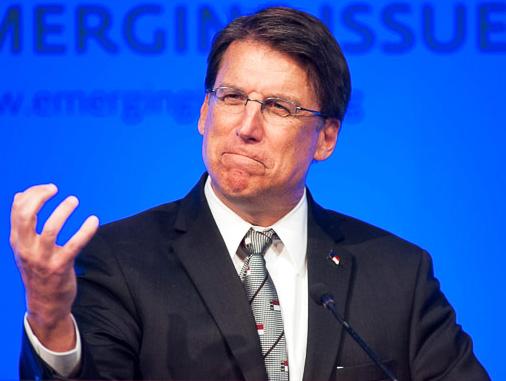In an effort to bring industry and manufacturing jobs back to North Carolina, Gov. Pat McCrory proposed many important, yet controversial educational policies.
His plan aims to introduce new pathways into a high school education, hold schools and teachers responsible for grades, introduce new technologies into schools and set higher expectations for students at all grade levels.
The General Assembly passed Senate Bill 14 three months after McCrory’s inauguration, and the law actualized many of the goals of the McCrory administration.
Its provisions enact a system that offers two different degrees for high school students to choose from: One degree offers students vocational preparation for a career or community college, and the other an education suited for pursuing a four-year university degree.
These options have been implemented to both eliminate the necessity for remedial courses at the college level, and facilitate more career specific skills for those who do not plan on going to a university.
Although this idea fulfills the goal of preparing North Carolinians for industrial jobs, experts theorize that this method may present problems. According to Lance Fusarelli, head of the educational leadership program at N.C. State, this policy is not a good idea.
“What happens to students who don’t think they want to go to college, obtain the non-university type high school diploma and then decide later they want to go to college?” Fusarelli said. “I suspect this would hurt their chances of admission because they would be the holders of a lesser diploma.”
This policy, which increases emphasis on vocational or technically oriented careers, passed amid a controversy surrounding the governor’s opinion of the value of liberal arts education.
Critics responded harshly to comments made by McCrory on the popular conservative radio show “Morning In America” about funding education based on the amount of jobs graduates get as opposed to the number of people in certain colleges.
“If you want to take gender studies, that’s fine,” McCrory said in the interview. “Go to a private school and take it, but I don’t want to subsidize that if its not going to get someone a job.”
He moved on to express that since technically oriented careers are in higher demand, they therefore deserve more funding.
In an interview with WRAL, Senator John Stein stated, “Universities are much more than job factories; they’re also about broadening minds.”
Moving forward, McCrory’s plans to increase the use of virtual education to teach the students of tomorrow and reform teachers’ salaries to reflect their effectiveness in the classroom.
Fusarelli said that although virtual education one of McCrory’s goals to expand is an appealing idea, precautions must be put into place to for it to be successful.
“With respect to virtual schools in K-12 education, these schools must be monitored with appropriate oversight by the state Department of Public Instruction,” Fusarelli said. “Otherwise, you have public money flowing ‘who knows where’ for “who knows what.”
On the issue of pay reform, Fusarelli and many other educators are in agreement with McCrory, and it seems that pay system overhaul may be the one educational policy many can find agreement.
“The argument that you can’t accurately measure teacher performance and that salary should be tied to a salary scale that rewards years of teaching no longer has merit,” Fusarelli said. “While years of teaching experience could be a component of teacher merit pay systems, it should never be the sole component.”








